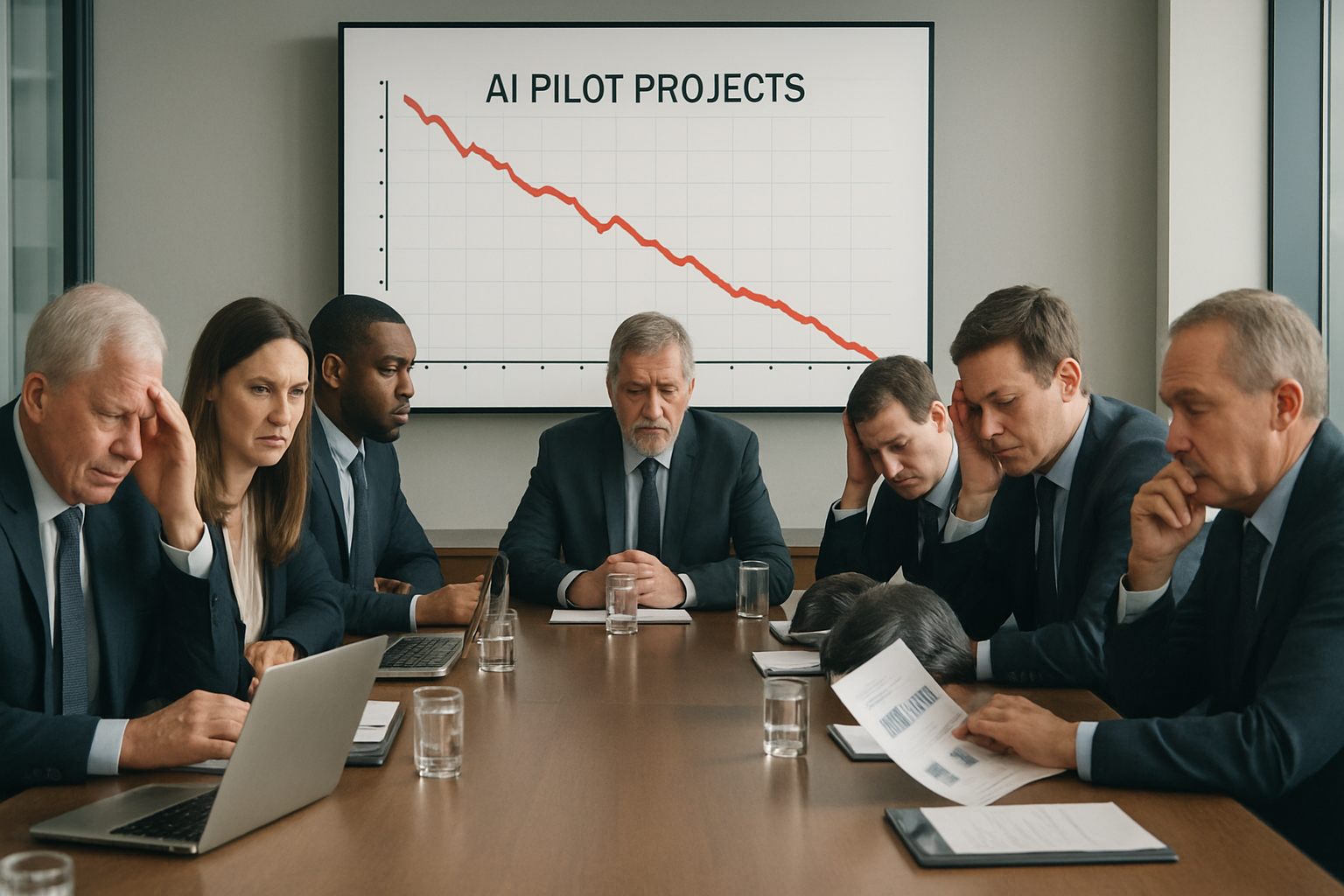The market managed to claw its way back above the 6000 mark on the S&P last week—a testament to either remarkable resilience or collective delusion, depending on your perspective. Now we're staring down a week packed with potentially market-moving events that could either validate this optimism or puncture it completely.
I've been watching this market shrug off trade tensions like a teenager ignoring curfew warnings, but with several high-profile events lined up, investors might finally be forced to pay attention.
Apple's WWDC: The AI Fashion Show
Monday kicks off with Apple's Worldwide Developers Conference, where Tim Cook will unveil the company's AI strategy. Apple has perfected the art of fashionably late arrivals—they're the friend who shows up to the party after everyone's already tipsy but somehow becomes the center of attention anyway.
Having covered Apple events since the iPad debut, I can tell you there's a pattern here. While Google and Microsoft have been tripping over themselves to stuff AI into everything with a microchip, Apple's been quietly watching, taking notes, and presumably figuring out how to make the same technology seem magical when they finally deploy it.
What's most fascinating isn't just what they'll announce—it's how investors will react. The stock has already priced in... well, something. But what exactly? A revolutionary AI interface? A slightly smarter Siri? The gap between those outcomes represents billions in market value that could materialize or vanish faster than you can say "one more thing."
GameStop Earnings: When Memes Buy Bitcoin
Tuesday brings us GameStop's quarterly report, which has evolved from financial disclosure to performance art. The video game retailer—once just a mall staple where teenagers traded in games for pennies on the dollar—announced a $500 million Bitcoin purchase that transformed it overnight from struggling retailer to... struggling retailer with cryptocurrency.
Look, I've followed GameStop since before it became a Reddit obsession, and this latest pivot feels like watching someone try every diet fad simultaneously. The Michael Saylor playbook worked for MicroStrategy (so far), but there's a world of difference between a software company with predictable revenue and a brick-and-mortar retailer selling physical media in 2024.
What's truly remarkable is the company's ability to maintain investor enthusiasm despite strategic shifts that would give most shareholders whiplash. Each new direction—from NFT marketplace to crypto holdings—gets treated like visionary thinking rather than desperate flailing.
The earnings call might reveal whether there's any coherent strategy beyond "whatever's trending on Reddit this quarter," but I wouldn't bet my last share on it.
Inflation Data: The Tariff Question
Wednesday delivers May's CPI figures, and economists are watching closely for any signs that tariff threats are filtering through to prices. (The actual tariffs haven't kicked in yet, but markets have a funny way of anticipating policy before it happens.)
This puts the Fed in an awkward position. They're in their pre-meeting quiet period now—presumably sitting in darkened rooms contemplating dot plots—ahead of their June 17-18 gathering. Powell has been trying to thread the needle between political pressure to cut rates and economic data suggesting he shouldn't.
It's like watching someone try to parallel park while passengers shout contradictory directions.
The consumer sentiment report on Friday might be equally revealing. After four straight months of decline, the index stabilized in May, but consumers are increasingly convinced that tariffs will drive prices higher. Turns out people don't enjoy paying more for things—who knew economics could be so complex?
Enterprise AI Reality Check: Oracle and Adobe Report
Lost amid flashier headlines are earnings from Oracle (Wednesday) and Adobe (Thursday)—two companies actually generating revenue from AI rather than just mentioning it in press releases to boost their stock price.
Oracle's partnering with OpenAI and SoftBank in something called "Stargate," which sounds less like an enterprise computing initiative and more like something that should involve space marines. Meanwhile, Adobe continues integrating AI into creative workflows, allowing designers to generate mediocre stock photos with unprecedented efficiency.
I spoke with several enterprise customers last month who described these companies' AI offerings as "actually useful"—which, in the current landscape of AI hyperbole, counts as faint but meaningful praise.
The Bottom Line: Market Crosscurrents
This week encapsulates everything about our current market moment—tech giants making AI promises, meme stocks pursuing head-scratching strategies, and macroeconomic forces pulling in multiple directions simultaneously.
The S&P has shown remarkable buoyancy (or perhaps troubling detachment from reality). But with Trump's tariff deadline approaching and increasing pushback against his budget proposals even from allies, we might be reaching the limits of market optimism.
Then again... markets have this maddening ability to ignore obvious risks right up until the moment they suddenly don't. And that transition typically happens on some random Tuesday when everyone was looking elsewhere.
So buckle up. Things are about to get interesting. Or maybe they won't. That's markets for you.




